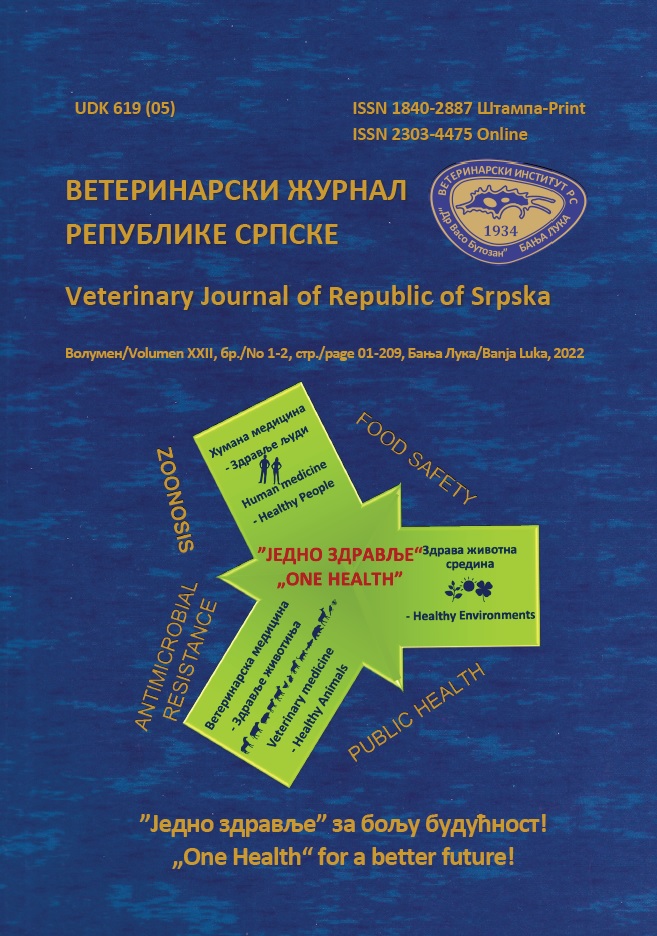MEAT DECLARATION – CONSUMER OPINION AND CONFIDENCE
DOI:
https://doi.org/10.7251/VETJEN2201044JAbstract
One of the main goals of food safety measures is to increase consumer confidence in food in general, and meat in particular, and therefore consumers are provided with information about the quality and safety of meat through declaration. Consumer confidence and food safety have become central issues in the food chain. Recent developments in labelling, traceability and quality assurance schemes offer a large amount of information available to the consumer. Declaring is today one of the most reliable ways of informing consumers about food quality. For the purposes of this study, data were collected by surveying 1,000 consumers from the Banja Luka and Gradiška areas. The results of this survey show that the majority of consumers (98.1%) believe that meat should have a declaration and that the statistically most important (p<0.05) information on the declaration is the expiration date (75.8% of responses) compared to other information (nutritional value, method of production, country of origin). The way the meat is packaged is also important for consumers (45.3% of responses). Also, the statistical significantly different answers (p<0.05) were given related to the trust in information about the safety/quality of meat obtained in different ways (butcher, seller, relative, friend, cook). The consumers showed that they mostly believe to information about the safety/quality of meat received from doctors/nutritionists (53.1%), and most often have a neutral attitude towards information received from consumer protection associations (41.9%). It is not sufficiently clarified what type of information consumers are most looking for on declarations, especially when it comes to meat and meat products. Because of that, continuous examination of consumers is needed, including sociological and economic factors, what motivates them to buy, what quality characteristics they require and what sources of information they believe the most.

